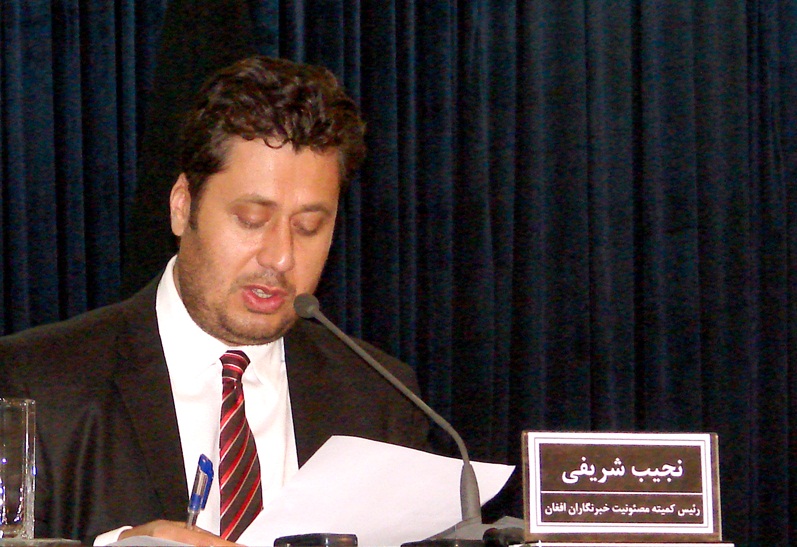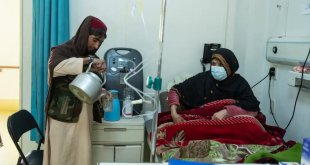By Farhad Naibkhel-KABUL: Fifty-three per cent of the female journalists and media workers say that their families are unhappy and even against their work with the media, a survey released by a media watchdog, said.
The survey launched by the Afghanistan Journalists Safety Committee, has interviewed 100 female journalists and media workers in Kabul, Balkh, Herat, Kandahar, Kunduz, Nangarhar and Khost provinces.
“Barriers created by families were one of the main challenges for female journalists,” Najib Sharifi, head of the committee told newsmen Thursday.
He said that the idea of a woman working outside, especially with the mass media, was still interpreted as a taboo in many parts of the country.
“Families, particularly the men including fathers, brothers and husbands often oppose women to work in the media outlets,” Sharifi added.
Also, 58 per cent of the female journalists interviewed, have said that their families set conditions and rules for them to work. “The conditions and rules are like what time we should be home, how we should be dressed and which programs we can participate in.”
Thirty-nine percent of responders said that female journalists are employed easier faster than men.
The survey has also pointed to sexual harassment of female journalists at workplace, as 69 percent of those surveyed have said that they were facing sexual harassment that could be verbal, visual and physical cases. They also complained of harassment by telephone and internet.
The female journalists face sexual harassment inside media outlasts as well as in the society, according to the survey.
Gender discrimination was another issue of concern in mass media for female journalists mentioned by the survey. Fifty-one percent of responders have said that women’s salary and authority is less than male staffs in the media.
Also, 30 percent of them have said that they have been threatened to death if they do not leave their jobs. But the survey has not specified who was threatening them.
Nargis, working for the 1TV channel, has said that the problems were mostly facing female journalists in the remote provinces.
“I have experience of working in provincial media outlets, views more limited regarding female journalists in the provinces as well as families are more conservative,” she has said.
 Afghanistan Times
Afghanistan Times




